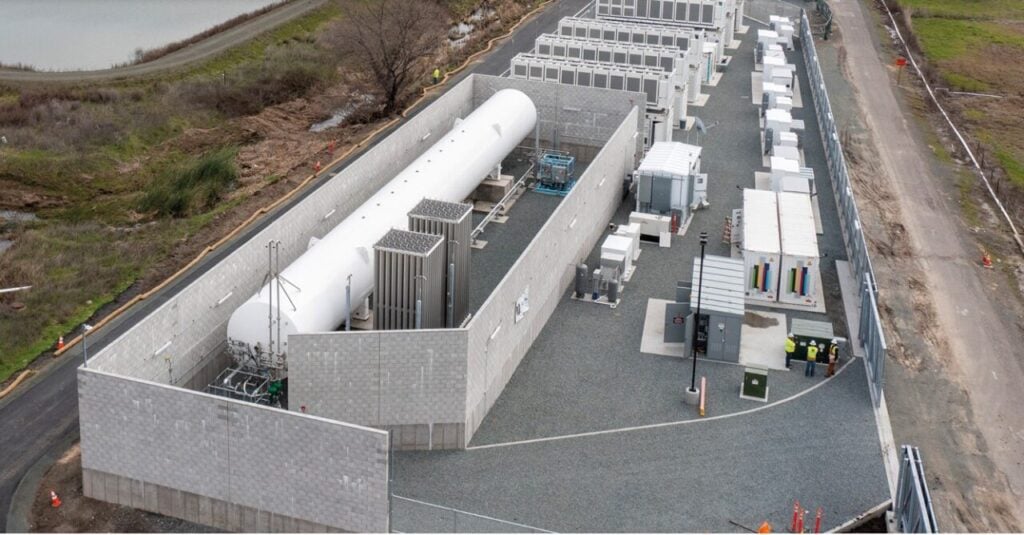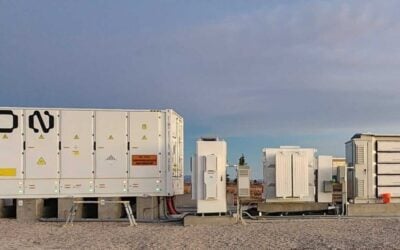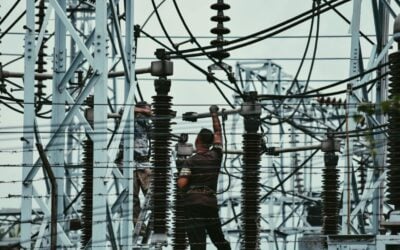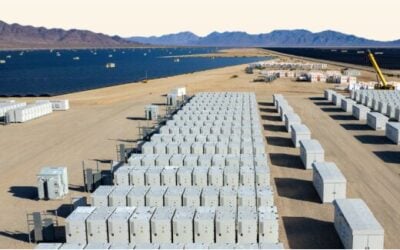
Energy storage developer and system integrator Energy Vault has closed on US$28 million in project financing for the Calistoga Resiliency Centre (CRC) located in California, US.
The US$28 million financing includes the sale of an investment tax credit (ITC) associated with the CRC.
According to Energy Vault, the CRC is being developed to serve a tolling agreement with California utility Pacific Gas & Electric (PG&E).
CRC combines hydrogen fuel cells with a lithium-ion battery energy storage system (BESS) and is specifically designed to provide power resiliency in the event of grid disconnection during wildfires or other natural disasters.
Try Premium for just $1
- Full premium access for the first month at only $1
- Converts to an annual rate after 30 days unless cancelled
- Cancel anytime during the trial period
Premium Benefits
- Expert industry analysis and interviews
- Digital access to PV Tech Power journal
- Exclusive event discounts
Or get the full Premium subscription right away
Or continue reading this article for free
The CRC will allow the Calistoga community microgrid to maintain power during shutoffs or disconnections. Energy Vault says the 293MWh system delivers approximately 48 hours of continuous energy with a peak output of 8.5MW during public safety power shutoff (PSPS) events.
These events would see the system operating in ‘island’ mode, utilising green hydrogen to generate electricity.
After supporting the black-start and grid-forming requirements of the microgrid, Energy Vault’s B-VAULT DC battery technology works with the fuel cells to maintain grid stability.
The company says CRC achieved mechanical completion and is expected to reach full commercial operations in Q2 2025.
Notably, Energy Vault claims that the CRC will serve as a model for future utility-scale hybrid microgrid storage deployments to address PSPS events across wildfire-prone regions.
The company has two additional projects in Texas, which it says are expected to yield an incremental US$25 million. These projects are close to commercial operations, and binding commitments have been made for the related ITCs.
As reported by Energy-Storage.news, Energy Vault was selected to provide the CRC after PG&E held a competitive solicitation seeking proposals for a microgrid at the Calistoga substation.
Later, it was announced that Energy Vault would be pairing Li-ion batteries with green hydrogen, which was called into question by some submissions to the California Public Utilities Commission (CPUC).
Particularly, the use of transporting green hydrogen instead of electrolysing it onsite was questioned.
At the time, the CPUC did note the potential risks of transporting the fuel but preferred it to using a more harmful fuel.
Energy Vault is well-known for its gravity-based long-duration energy storage (LDES) technology. In a strategic shift, the company started implementing battery energy storage systems (BESS) and has begun owning and managing its own projects.
In November 2024, the company entered into a 10-year deal for a 57MW/114MWh BESS in Texas, the first Energy Vault-owned BESS that Energy-Storage.news is aware of.





